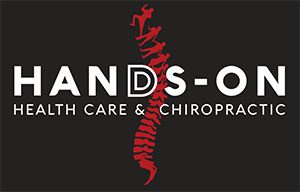- Nutrition plays a vital role in reducing inflammation and supporting tissue repair, especially for those recovering from injury or dealing with chronic pain.
- Specific nutrients such as omega-3s, magnesium, and vitamins D and B support musculoskeletal health and enhance the benefits of chiropractic adjustments.
- Hands-On Health Care & Chiropractic in Tarpon Springs and New Port Richey integrates whole-body wellness, including nutritional awareness, into their patient-centered care approach.
When you think about chiropractic care, the first image that often comes to mind is spinal adjustments—realigning the spine to relieve pain and improve mobility. But what if pain relief and healing weren’t just about alignment? What if your recovery could be influenced as much by what’s on your plate as by what happens on the adjustment table?
For many patients over 40 dealing with chronic pain, auto or sports injuries, or joint stiffness that doesn’t ease up with rest, nutrition often plays a silent yet significant role. At Hands-On Health Care & Chiropractic, with locations in both Tarpon Springs and New Port Richey, Florida, nutrition isn’t treated as an afterthought. It’s part of a broader approach to healing and resilience.
In this blog, we’re exploring how what you eat can impact how you heal, especially when working in tandem with chiropractic care. Whether you’re recovering from a car accident, rehabbing after a sports injury, or simply tired of waking up with a stiff back or aching knees, this is for you.
Pain and Inflammation: The Connection with Diet
Chronic pain often stems from or is worsened by inflammation. And while inflammation is the body’s natural response to injury, when it becomes chronic, it starts doing more harm than good.
Processed foods, high sugar intake, trans fats, and excessive alcohol can all promote inflammation at the cellular level. For patients already dealing with joint degeneration, herniated discs, or soft tissue injuries, these inflammatory triggers can prolong recovery and amplify discomfort.
A chiropractor may adjust your spine to reduce nerve compression or improve your range of motion, but if your body is constantly inflamed due to poor nutrition, you’re likely working against yourself. Instead of simply relying on treatments, nutrition offers an internal support system. Foods rich in antioxidants, omega-3 fatty acids, and fiber can help calm systemic inflammation, setting the stage for better outcomes.
Fueling the Healing Process
Every tissue in your body—from the cartilage cushioning your joints to the tendons supporting your spine—requires nutrients to heal and rebuild. After an injury, your body enters a hyper-repair mode. Cells regenerate, inflammation sets in to protect the injury site, and your immune system goes to work clearing damaged tissues.
If your diet lacks the necessary building blocks—like protein for tissue repair, vitamin C for collagen production, or magnesium for muscle recovery—you’re not giving your body what it needs to rebuild.
Many patients over 40 notice their injuries linger longer than they did in their younger years. While part of this is natural aging, a significant factor is nutrient absorption. As we age, our digestive systems don’t absorb nutrients as efficiently, and our bodies often need more support to heal fully. Chiropractic care addresses physical alignment, but proper nutrition ensures that real healing can occur beneath the surface.
A Closer Look at Nutrients That Support Musculoskeletal Health
While everybody is unique, certain nutrients have stood out for their role in reducing pain, enhancing mobility, and supporting the structural integrity of the musculoskeletal system.
Vitamin D and Calcium
These two often go hand in hand. Calcium builds strong bones, but without vitamin D to help absorb it, calcium can’t do its job. Many adults over 40, especially those with joint or spinal pain, benefit from regular vitamin D assessments. Low levels can not only affect bone density but can also make musculoskeletal pain more severe and persistent.
Omega-3 Fatty Acids
Found in fatty fish like salmon, chia seeds, and walnuts, omega-3s have been shown to reduce inflammation and even offer mild pain relief. They support joint lubrication and may help ease stiffness in patients with osteoarthritis or soft tissue injuries.
Magnesium
Magnesium plays a role in over 300 enzymatic processes, including nerve function and muscle relaxation. For patients with chronic back or neck tension, magnesium can help reduce muscle cramping and support recovery after adjustments.
B Vitamins
These are essential for nerve function and tissue healing. B12 and B6, in particular, help maintain healthy nerve cells and reduce neuropathic pain. If you’re experiencing tingling or numbness following a spinal injury or disc issue, B vitamin support may be key.
Nutrition for Auto and Sports Injury Recovery
Auto injuries—like whiplash, lower back trauma or shoulder strain—can leave behind long-term inflammation, muscle guarding, and restricted mobility. Sports injuries, whether from high-impact activities or repetitive strain, often cause micro-tears and joint misalignments that require healing at multiple levels.
Chiropractic adjustments help restore structural balance, but the metabolic support from a nutrient-rich diet is what helps repair the tissues that have been injured. For example, collagen-rich foods or supplements may benefit those recovering from ligament or tendon injuries. Anti-inflammatory herbs such as turmeric and ginger can be especially useful when soft tissue inflammation is a major factor.
While some patients jump back into activity as soon as the pain subsides, the underlying tissues may still be healing. Supporting your body with nutrient-dense meals not only reduces the risk of re-injury but can help you return to activity with less compensation and strain.

Why Weight and Nutrition Matter for Joint Health
For men and women over 40, carrying excess weight—even a few extra pounds—can significantly increase joint pain, especially in the knees, hips, and lower back. Chiropractors often see patients with recurring alignment issues that are exacerbated by the strain of additional weight.
Nutrition plays a central role here. A diet high in fiber, plant-based foods, and lean proteins can not only help reduce inflammation but also support gradual, sustainable weight loss. For joint health, this can be a game-changer. Every pound lost can take roughly four pounds of pressure off the knees.
Losing weight isn’t just about looking or feeling better; it can directly affect how well your body responds to chiropractic adjustments and how long the relief lasts.
Gut Health and Nervous System Function
It might not seem obvious, but your gut and nervous system are deeply connected. The enteric nervous system (often called the “second brain”) communicates constantly with the central nervous system. When your gut is out of balance—whether due to poor diet, chronic stress, or past antibiotic use—it can impact how your nervous system regulates pain.
Chiropractic care works directly with the nervous system through spinal adjustments. But when your gut is inflamed or imbalanced, it can contribute to chronic tension, mood disturbances, and even heightened pain perception.
Restoring gut balance through probiotics, fermented foods, and prebiotic fibers may improve the effectiveness of chiropractic treatments by calming systemic nervous system sensitivity. It’s a lesser-known, but increasingly important, aspect of integrated care.
Nutrition’s Role in Maintaining Results from Chiropractic Care
Chiropractic care is often misunderstood as a one-time fix. In reality, it’s a process, especially for individuals with long-standing pain or injury histories. Many patients leave the table feeling better, only to have their pain return in a few days. While posture, stress, and activity levels can contribute to this cycle, poor nutrition is often overlooked.
Think of nutrition as the “glue” that helps hold your adjustments in place. When muscles and ligaments are nourished, they’re better able to support proper alignment. When inflammation is low, healing happens faster. And when energy levels are stable from well-balanced meals, it’s easier to stay active and maintain mobility between sessions.
Barriers to Nutritional Change: Why It’s Not Just About Willpower
Many adults over 40 face real challenges when it comes to making dietary changes. Old habits, busy schedules, or misinformation can make it difficult to know where to start. Add in the frustration of chronic pain, and food can become more about comfort than nourishment.
But integrating better nutrition doesn’t have to be overwhelming. It often starts with small, sustainable changes. Swapping out sugary beverages, increasing water intake, and adding a handful of greens to one meal a day—these changes may not seem dramatic, but over time, they reduce inflammation and support healing.
The goal isn’t perfection; it’s creating an environment in your body where healing is possible. Chiropractic care helps you move better. Nutrition helps you stay well. Together, they form a system of support.
Integrative Care in Tarpon Springs and New Port Richey
At Hands-On Health Care & Chiropractic, patients from Tarpon Springs and New Port Richey are already experiencing the benefits of a holistic approach. While each adjustment is tailored to the individual, the larger goal is to empower patients with the tools to heal outside the treatment room.
From personalized advice about hydration and food choices to referring patients for nutritional support when needed, the aim is to treat the whole person, not just the pain. It’s not about prescribing a diet plan, but about helping people see the connection between how they fuel their bodies and how they feel each day.
If you’re over 40 and feeling frustrated with recurring pain, sluggish recovery, or tension that keeps coming back, nutrition may be the missing piece. It doesn’t replace chiropractic care, but it reinforces it. And for many patients, that’s what makes the difference between temporary relief and lasting change.
Final Thoughts
Pain is complex. So is healing. For adults dealing with neck, back, or joint issues—especially following injury—there’s rarely a single solution that works in isolation. Chiropractic care addresses alignment, nerve function, and muscular tension. Nutrition addresses inflammation, tissue repair, and systemic balance.
Together, they form a powerful partnership. If you’re doing all the right things—showing up for adjustments, stretching, staying active—but not getting the long-term relief you hoped for, it may be time to look at your plate.
Healing doesn’t just happen in the treatment room. It happens every time you make a choice to support your body with what it needs. And over time, those choices can create a body that feels stronger, moves better, and lives with less pain.
If you’re dealing with persistent back, neck, or joint pain—especially after an injury—nutritional support may be the missing link in your recovery. At Hands-On Health Care & Chiropractic in Tarpon Springs and New Port Richey, we combine personalized chiropractic care with whole-body wellness strategies. Call or visit us to learn how we can support your healing journey.


